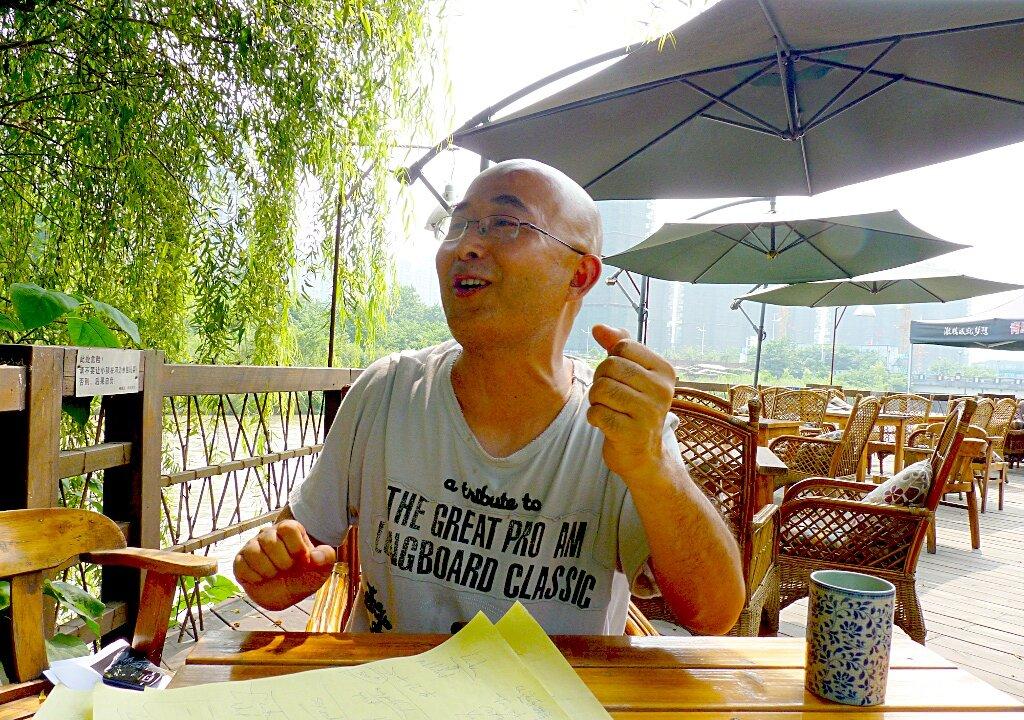Liao Yiwu, a Chinese writer who has been based in Berlin for the last four years, was locked out of his Facebook account on Dec. 30, after repeatedly posting photographs of a nude or mostly-nude protester. The account and all its posts were also temporarily inaccessible to other users, giving the appearance of their being deleted; it was later restored, but remains inaccessible to its owner.
“I’ve returned to China,” Liao said in an email.
The images that Facebook said led to Liao’s punishment were of the Chinese activist Meng Huang, who ran through the streets of Stockholm naked on Dec. 10, as a gesture of support for the imprisoned Chinese writer Liu Xiaobo.
“These kind of photographs, of naked protest, are common in the West. Like Pussy Riot in Russia, and other musicians and social activists—they often use this method of protest,” Liao said in a telephone interview on Tuesday.
“I wrote this clearly on Facebook, but they deleted it, deleted it many times.”





